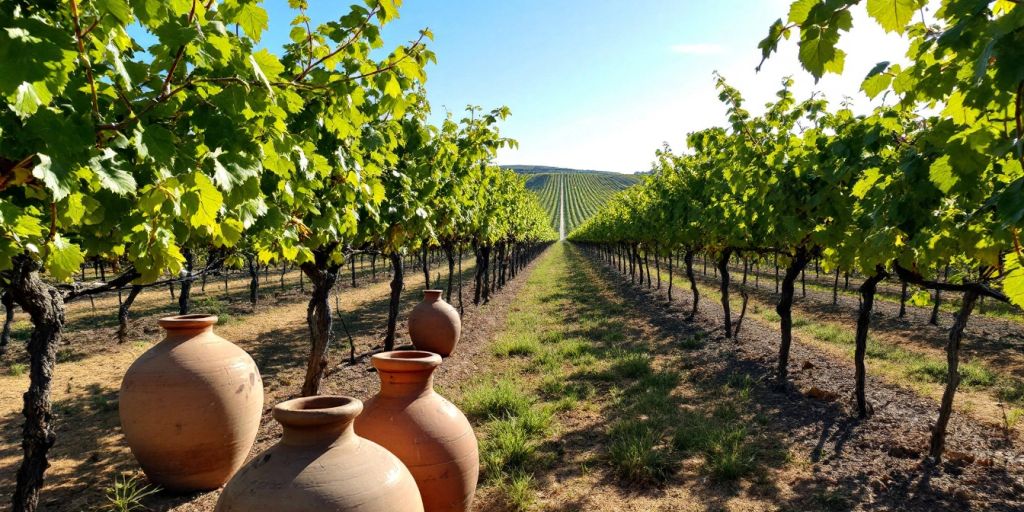Alentejo’s Amphora Wine Day, held on November 16 at Herdade do Rocim, is a unique celebration of ancient winemaking traditions. This event, coinciding with St. Martin’s Day, attracts over 60 international producers and wine enthusiasts, showcasing the rich heritage and innovative spirit of amphora wines.
Where & When
- Date and Location: November 16 at Herdade do Rocim, Alentejo.
- Significance: Celebrates St. Martin’s Day and the tradition of amphora winemaking.
- Participants: Over 60 international wine producers and experts.
- Experience: Tasting of amphora wines from various regions, including Alentejo, Armenia, and Georgia.
A Celebration of Tradition
Launched in 2018, Amphora Wine Day has quickly become a pivotal event for the global clay pot wine movement and this event not only highlights the diversity of amphora wines but also educates attendees about the historical significance of this ancient winemaking method.
The Art of Amphora Winemaking
Amphora winemaking, particularly in Alentejo, utilizes clay pots that can hold up to 2,000 liters of wine must. These pots are crafted from local clay and are coated with a mixture of beeswax, pine sap, olive oil, and herbs to enhance the fermentation process. This traditional method allows for a unique oxygen transfer, resulting in wines that are rich in flavor and character without the influence of oak barrels.
The fermentation process in amphoras is spontaneous, with each batch reflecting the unique terroir, grape variety, and the specific amphora used. This artisanal approach ensures that no two wines are alike, making each tasting experience special.
The production of Vinho de Talha, a designation of origin for amphora wines, has deep cultural roots in Alentejo. Approved in 2010, this designation requires winemakers to use indigenous grape varieties and maintain traditional practices. On St. Martin’s Day, villagers gather to celebrate the release of the wine, enjoying traditional foods and the vibrant flavors of the freshly tapped amphora wine.
Conclusion
Amphora Wine Day is more than just a wine tasting event; it is a celebration of heritage, innovation, and community. As the event continues to grow, it plays a crucial role in preserving the ancient traditions of winemaking while introducing new generations to the rich history of amphora wines. Honrado sums it up perfectly: “This ancient tradition is what makes us special, and it should never be forgotten.”
